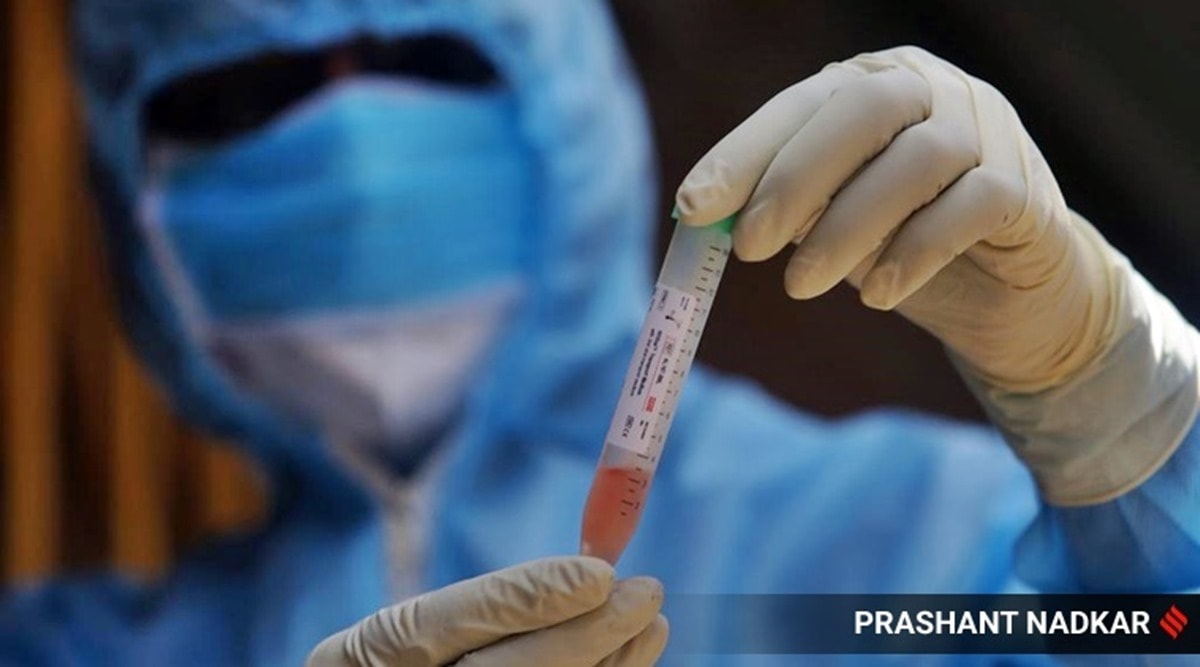 The survey will be conducted in a random sample of 4,800 persons among the general population in the third week of November, with the results expected to be released by the end of the month.
The survey will be conducted in a random sample of 4,800 persons among the general population in the third week of November, with the results expected to be released by the end of the month.Punjab will conduct a second sero-survey across a larger sampling area to assess the spread of Covid-19 in the state.
Chief Minister Amarinder Singh Tuesday gave a go ahead to the survey during a Covid review meeting. The survey will be conducted in a random sample of 4,800 persons among the general population in the third week of November, with the results expected to be released by the end of the month.
A government statement said the CM agreed with health experts on the need to find the extent of spread of SARS CoV-2 outside the containment zones, in contrast with the first sero-survey that was conducted in five containment zones across five districts. The first survey conducted in one containment zone each in Patiala, Mohali, Ludhiana, Jalandhar, Amritsar had found 27.8% sero prevalence.
The second survey will include random sample of 120 clusters (60 villages and 60 urban wards) from 12 randomly selected districts, with 40 adults to be selected randomly from each cluster.
ELISA test will be used to detect IgG antibodies in blood specimen for the survey.
The sampling scheme & survey method has been adapted from ICMR sero-survey protocol, the meeting was informed.
CM for sustained testing
Amid projections of a second Covid wave hitting Punjab, the CM directed the Health and Medical Education departments to maintain the levels of testing at 30,000 a day and also ordered amendment in rules to enable direct recruitment of super specialist doctors to meet shortfall of medical staff.
The CM asked Chief Secretary Vini Mahajan to work on amending the rules for ensuring direct recruitment in super speciality departments to prevent weakening of response to the coronavirus pandemic.
Amarinder directed the departments concerned to ensure that at least 25,000 RT-PCR and 5,000 Rapid Antigen Tests (RAT) are conducted every day. “The current decline in cases, notwithstanding, the situation remains grim with a second wave expected to hit the state,” he said, stressing the need to strictly follow all safety protocols.
He directed DGP Dinkar Gupta to crack down heavily on those not wearing masks or not adhering to social distancing and other norms.
Amarinder also underlined the need to focus specially on potential super spreaders. Government employees must be tested routinely, and with schools and colleges opening up, it was important to make proper schedules and enhance the number of mobile teams for testing, he said.
Expressing concern over the high mortality rate in the state, the CM asked the medical experts team headed by Dr KK Talwar to evolve effective strategies to tackle the problem, caused mainly by late admissions/treatment, co-morbid complications, lack of adherence to guidelines with regard to use of drugs in some hospitals, lack of expertise and monitoring modalities, among others.
Dr Talwar apprised the CM of the steps taken to strengthen Covid management facilities in the state, including evaluation of L-3 facilities currently in progress by an expert team from PGI.
Health Secretary Hussan Lal informed the meeting that data received from certain hospitals and analysed by experts from PGI and AIIMS showed higher mortality among patients having significant co morbidities and old age but the data was inconclusive for establishing other factors.
While overall number of cases had declined in the state, 11 districts had shown increase in positivity rate in the past four weeks, he said, identifying them as Ropar, Bathinda, SAS Nagar, Faridkot, Ludhiana, Jalandhar, Mansa, Amritsar, Moga, Nawanshahar and Sangrur. He further disclosed that currently 1600 patients were in home isolation in the state.
DK Tiwari, Secretary Medical Education & Research, said positivity rate in Punjab had remained below 2% since October 11. In terms of deaths, those over 60 years of age constituted about 35% while those with co-morbid conditions were 82.4% of the total Covid deaths reported from November 1 to 7.